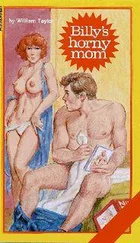The hag reached a hand out to Martin, who fled up the stairs in terror, a wisp of cobweb caught on his sleeve.
He plucked himself from the scene without moving and felt panic in his heartbeat. He said the Our Father, the Hail Mary, the Confiteor. Deliver us from evil. Blessed is the fruit of thy womb. Mea maxima culpa. He had not prayed in twenty-five years except for knee-jerk recitations at funerals, and did not now believe in these or any other prayers. Yet as he prayed, his pulse slowly slackened, his eyes stayed closed. And as he moved into sleep, he knew that despite his infidel ways, the remnants of tattered faith still had power over his mind.
He knew his mind had no interest in the genuineness of faith, that it fed on the imagery of any conflict that touched the deepest layers of his history. Years ago, he’d dreamed repeatedly of hexagons, rhomboids, and threes, and still had no idea why. He understood almost none of the fragmented pictures his mind created, but he knew now for the first time that it was possible to trick the apparatus. He had done it. He was moving into a peaceful sleep, his first since the departure of Peter. And as he did, he understood the message the images had sent him. He would go to Harmanus Bleecker Hall and watch Melissa impersonate his mother on stage. Then, all in good time, he would find a way to make love to Melissa again, in the way a one-legged man carves a crutch from the fallen tree that crushed his leg.
The fountain cherub, small boy in full pee, greeted Martin as he walked through the Hall’s foyer. Psssss. The Golden Bowlful , by Henry Pease Lotz. Martin remembered seeing Bert Lytell here, the Barrymores and Mrs. Fiske strutting on this cultural altar. He saw the young Jolson here, and the great Isadora, and when he was only thirteen he saw a play called The Ten-Ton Door , in which a man strapped to that huge door was exploded across the stage by a great blast, an epic moment.
“So you made it,” said Agnes, the hennaed gum chewer in the Hall’s box office. “We expected you last night.”
“I was up in Troy last night,” Martin said, “walking the duck.”
“The duck?”
Martin smiled and looked at his ticket, B–108 center, and then he entered the Hall, a quarter century after the premiere that never was. Edward Sheldon’s Romance premiered here in 1913 instead of The Flaming Corsage , and Sheldon’s reputation blossomed. But when the priests and Grundys killed Edward Daugherty’s play, calling it the work of a scandalous, vice-ridden man, they made Edward a pariah in the theater for years to come.
In 1928, a bad year for some, Melissa set out to convert the play to a talking picture in which she would star as the mistress, her long-standing dream. She wanted Von Stroheim to direct, appreciative of his sexual candor, but the studios found both the play and the scandal dated, and dated, too, Melissa, the idea of you as a young mistress.
Aging but undauntable, Melissa turned up then with something not so old: Edward Daugherty’s journal from the years just before and just after the scandal, full of the drama and eroticism of the famous event, in case, chums, you can’t find enough in the play. Still, no studio was interested, for Melissa was a fading emblem of a waning era, her voice adjudged too quirky for talkies, her imperious and litigious ways (when in doubt she sued) too much of a liability for the moguls.
And so The Flaming Corsage continued unproduced either as play or film until the Daugherty renaissance, which began with an obscure New York mounting of his 1902 work, The Car Barns. George Jean Nathan saw that production and wrote that here was a writer many cuts above Gillette, Belasco, Fitch, and others, more significantly Irish-American than Boucicault or Sheldon, for he is tapping deeper currents, and superior to any of the raffish Marxist didacticists currently cluttering up the boards. Was this neglected writer an American O’Casey or Pirandello? Another O’Neill? No, said Nathan, he’s merely original, which serious men should find sufficient.
The Car Barns revival was followed by The Masks of Pyramis , Edward Daugherty’s one venture into symbolism. It provoked a great public yawn and slowed the renaissance. The Baron of Ten Broeck Street followed within a year, a play with the capitalist as villain and tragic figure, the protagonist patterned after Katrina Daugherty’s father, an Albany lumber baron. Reaction to the play was positive, but the renaissance might have halted there had not Melissa’s need to see herself transfigured on stage been so unyielding.
Six more years would pass before The Flaming Corsage entered its new age. By then, three decades after its inspiration, it had become a wholly new play, its old sin now the stuff of myth, its antique realism now an exquisite parody of bitter love and foolish death. The New York production was a spectacular success. Melissa made her comeback, and Edward Daugherty strode into the dimension he had sought for a lifetime as an artist. But he strode with a partial mind. He beamed at the telling when Martin brought the news, but minutes later he had forgotten that he had ever written that play, or any other. What would please him most, he said, squirming in his leather armchair in the old house on Main Street, would be a hot cup of tea, son, with lemon if you’d be so kind, and a sugar cookie.
The theater was already two-thirds full and more were still arriving to see the famed beauty in the infamous play about Albany. Martin positioned himself at the head of an aisle, holding his battered hat in hand, standing out of the way as the playgoers seated themselves. Joe Morrissey nodded to him, ex-assemblyman, tight as a teacup, who lived near Sacred Heart; when the pastor asked him to donate his house to the nuns, old Joe sold the place immediately and moved out of the parish. And there, moving down front, Tip Mooney, the roofer, with the adopted daughter everybody chucklingly says is his mistress. Taboo. Ooo-ooo. The zest for it. And here, as the houselights dim, stands the fellow out for redemption. I’m just as big a sinner as you, Dad. Playboy of the North End, but keeping it in the family. Here to see everybody’s favorite honeycomb, who, as Marlene, the reporter, wrote, is out to prove she can plumb the depths of the human heart with her acting, even as she keeps the human spirit all aglow with her dancing, and the human imagination fevered merely by her well-known sensual presence, etc.
The lights went all the way down, the curtain rose and the Daugherty living room on Colonie Street was magically reconstituted from thirty years past, even to the Edison phonograph and its cylinders, the Tiffany butterfly lamp from Van Heusen Charles, the Hudson River landscape on the far wall, and all the other meticulously copied details demanded by the author; for those possessions were inseparable from the woman who sits there among them: the simulated Katrina, remarkably reincarnated by Melissa in a blondish gray wig, upswept into a perfect Katrina crown, her glasses on, her lavender shawl over her legs as she sits in the black rocker, book open in her lap, hands crossed upon it.
“Where will you go?” she asks the young man standing by the bay window.
And the young man, in whom Martin does not recognize anything of his disordered self of 1908, replies, “Someplace where they don’t snigger when my name is mentioned.”
“Will you go to Paris?”
“Perhaps. I don’t know.”
“It must be dreary there without Baudelaire and Rimbaud.”
“They have that tower now.”
“Your father will want to know where you are.”
“Perhaps I’ll go to Versailles and see where the king kept Marie Antoinette.”
Читать дальше












